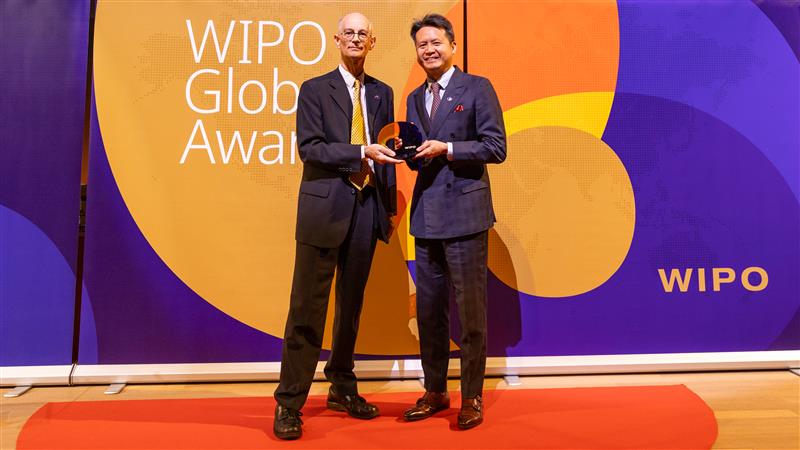Retail Scanner
PlanetArt LLC vs Photobox Limited
Juli 2020
High Court judgement regarding mobile phone app icons. An interesting High Court judgment (England and Wales) has been handed down regarding infringement and passing off in relation to a mobile phone app.
Background
PlanetArt LLC [the Claimant] had produced and marketed a ‘Free Prints’ mobile phone app aimed at providing a limited number of free copies of user’s images each month with the customer paying for delivery. The app was very successful with approximately 11.5 million downloads by 2019.
Photobox Limited are an established provider of photo quality prints on a ‘paid for’ basis. They launched an app allowing customers to order a limited number of prints for free under the ‘Photobox Free Prints’ app in April 2019.
PlanetArt LLC launched infringement proceedings based on the use of Photobox’s Free Prints Icons [shown below], use of ‘Photobox Free Prints’ in various app stores, as well as a passing off claim.
Claimant’s mark

Defendant’s marks
The mark was primarily used as follows:

The Defendant also used a ‘Christmassy’ version of the mark during the festive period which was included in the claim:
PlanetArt initially used a claim of passing off to seek an interim injunction against continued use of the Photobox app. The request for an injunction ultimately failed, largely because Photobox had taken some limited action to cease further commercialisation of the app with undertakings to PlanetArt. It seems this act of goodwill worked in Photobox’s favour and the injunction request was not granted.
Subsequently, PlanetArt began formal infringement proceedings against Photobox claiming likelihood of confusion (s.10(2)) TMA, detriment to distinctive character/unfair advantage (s.10(3)) TMA and passing off.
Likelihood of Confusion
The case was heard by Mr. Daniel Alexander QC, sitting as a Deputy Judge at the High Court of England and Wales. The Deputy Judge found that the icons were similar from the perspective of the average consumer, identifying that there were strong aural and visual similarities in the marks, as well as some conceptual similarities. The Deputy Judge found that the icons would likely be viewed as a brand in the minds of the average consumer. Taking this into account, along with the similarities in the appearance of the icons (the colour combination and choice of white line drawings within them), a likelihood of confusion was established. PlanetArt also established evidence of reputation which supported this finding. The ‘FREE PRINTS’ part of the mark was seen an descriptive and was not capable of giving rise to significant confusion on the part of the average consumer.
Detriment to distinctive character/unfair advantage
Having established the reputation of PlanetArt’s icon mark, the Deputy Judge found it apparent that the average consumer would establish a link between the icon mark and that of Photobox. However, the Deputy Judge found that the damage to the repute of PlanetArt’s mark through the use of Photobox’s mark would be marginal. The Deputy Judge found that there was a likelihood of confusion between the marks which would lead to a detriment to the distinctive character of PlanetArt’s marks and lead to an impairment of their reputation. Photobox was found to have infringed. However, it is important to note that infringement was found in relation to PlanetArt’s icon marks, but not in relation to the ‘FREE PRINTS’ element of the marks.
Passing off
In order to successfully claim passing off, three criteria must be established: there must be goodwill in the mark, there must be misrepresentation of that mark/goodwill, and the misrepresentation must be seen to have caused damage to the goodwill in the mark. The Deputy Judge held that some goodwill was present in PlanetArt’s mark by way of the distinctive appearance of the icon, but this was limited. When it came to the assessment of misrepresentation, since there was also no evidence of actual confusion between the marks when the apps were simultaneously available during April to November 2019, no misrepresentation was found. Without this, there could be no damage caused and no passing off could have occurred.
Conclusion
This partial success for PlanetArt highlights the importance of searching visual components of app icons to ensure that they would not be seen as infringing those of existing icons being used by third parties. It also emphasises the limited value of including descriptive elements in trade marks as such elements may not be enforceable, as was the case with the ‘FREE PRINTS’ element in the claimant’s mark in this case.
It is interesting that the Deputy Judge chose to highlight the general behaviour of Photobox in their choice of branding by describing it as an “antisocial non-distancing of the Defendants’ identity from that of the Claimants”. Perhaps this indicates an increasing willingness on the part of the Courts to identify when Defendants are possibly taking unfair advantage in a commercial context, as well as in a legal context.
































